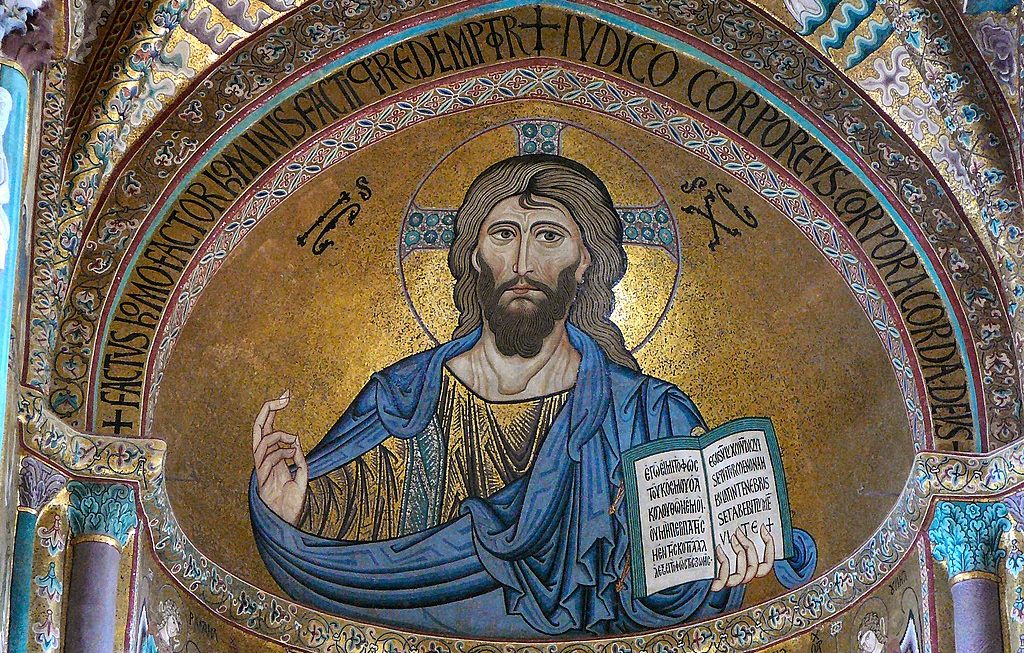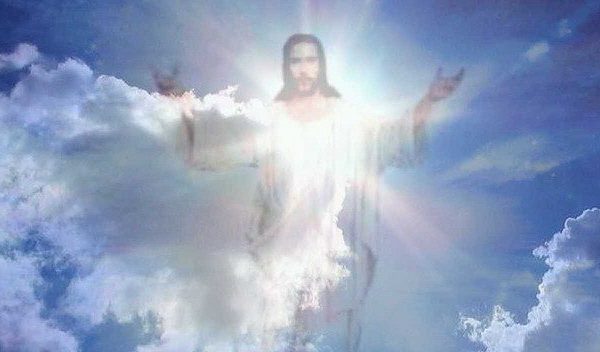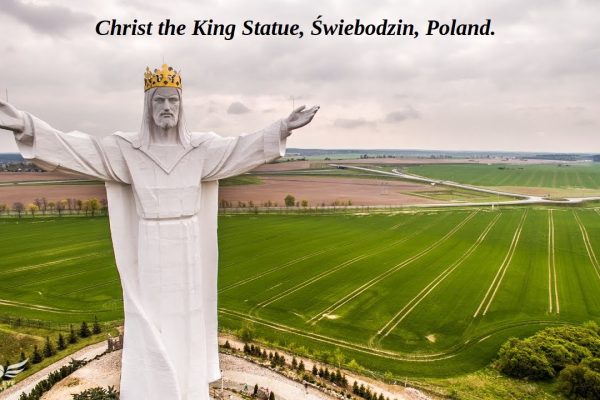by deacon Valery Timofieiev. Translation, links & illustration by Frank Pax.*
In the Creed adopted by the New Believers, instead of the ancient “to His kingdom there is no end,” there is the following: “to His kingdom there will be no end.” In order to correctly assess the catastrophism of the change from the ancient “there is no” to the new “there will be no”, one should first dwell on the historical side of the matter.
At the Second Council of Constantinople, the Creed was written as – oú tís vasileías ouk éstai télos (οὗ τῆς βασιλείας οὐκ ἔσται τέλος), which was understood as a clear denial of the finitude of Christ’s Kingdom. This dogma was directed against Marcellus of Ancyra, who from about the end of the 340s. began to teach that the kingdom of Christ is finite, that it will cease after the Last Judgment, merging with the kingdom of God the Father.
V.V. Bolotov presents the heretical thought of Marcellus of Ancyra as follows:
The Kingdom of Christ is the kingdom of the Word incarnate and is therefore not identical with the eternal kingdom of Logos (who co-reigns with the Father), with the Kingdom of God. But the purpose of the incarnation was given not in the very being of the Word, but in the economy: Logos became incarnate for the world. Consequently, this goal is finite and, as such, it will one day be achieved, and then: the kingdom of Christ will have no basis for existence. So, the kingdom of Christ will one day end.
[38. P. 128].
The teaching, as we see, is completely heretical.
To combat this heresy, Orthodoxy defended the dogma of the infinity of Christ’s kingdom. A striking example of this is the XVth Catechetical Teaching of St. Cyril of Jerusalem, in which St. Cyril says to his flock:
And when you hear from someone that the kingdom of Christ will have an end, hate this heresy, it is the second head of the serpent, which recently grew in Galatia (Ancyra was the capital of Galatia in Asia Minor). Someone dared to say that after the end of the world Christ will not reign; they dare to assert that the Word, which came from the Father, and after having returned to the Father, will no longer exist. Nowadays heretics teach against Christ, while Gabriel the Archangel taught about the eternal abiding of the Savior. Listen to the testimony of Daniel read now: ‘And to Him was given power and honor, and a kingdom, and all people, tribes, and nations will serve Him: His power, is power eternal, which will not pass away, and his kingdom will not be scattered.’ Hold fast to this, only believe in this, and turn away from the heretical teaching, for you have heard very clearly about the infinity of the kingdom of Christ.
(XV, 27)
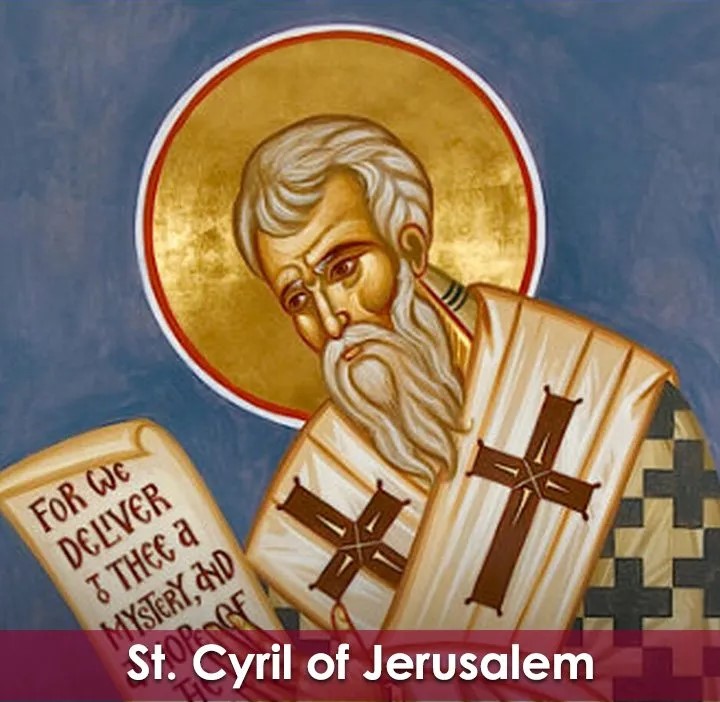
What is this heresy, what line of thought makes it heretical? St. Cyril gives the following answer to this question:
They dared to say that the words “until he puts his enemies under his feet” mean the end of His dominion, they dared to set bounds to the eternal kingdom of Christ.
(XV, 31)
In other words, the very idea of bounds, that the kingdom of Christ either has a beginning or has an end – it is precisely this idea of the kingdom of Christ having certain bounds or limits, or an end, or a beginning – that is heresy. St. Cyril speaks about this quite clearly:
For just as it is impossible to say that there was a beginning of the days of Christ, do not listen if anyone speaks about the end of His kingdom, because it is written: His kingdom is an eternal kingdom.
(XV, 32)
Thus, it is quite obvious that the Orthodox Church struggled precisely with the false dogmatic position of the bounds of the kingdom of Christ.
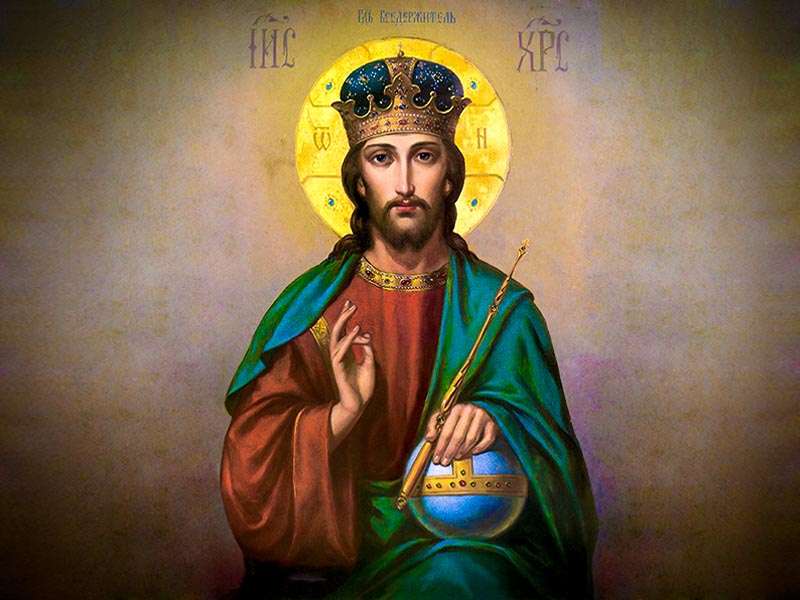
If we turn to the New Believers text of the Creed, we will discover amazing things that follow from the words “there will be no end.”
To begin with, it should be said that the word budet <will be>, which root is bud– in both the Ancient Slavonic and Church Slavonic languages- only has the meaning of the future tense, since in the present the verb bity has the form iesm, iesi, etc. [61. P. 190]. In addition, the particle zhe [doesn’t get translated in English, F.P.] in the phrase <His kingdom> in Slavic languages is used to highlight any member of the sentence, in this case, based on the context, Christ. Then from the New Believer text of the Creed it follows: <and in one Lord Jesus Christ: again coming with glory: to His (i.e., the coming Christ – V.T.) kingdom there will be no end>. Thus, it turns out that only when Christ comes a second time, only then will He become a king, and only then there will be no end to His kingdom.
The words of the New Believers’ Creed obviously contain some kind of new heresy: if Marcellus did not doubt that Christ reigns, but asserted that His kingdom will one day end, then the New Believers say that Christ’s reign has not yet begun at all. Also, the holy martyr Archpriest Avvakum pointed out this heretical alteration in the Creed. In the 1st petition to Czar Alexei Mikhailovich (spring 1664), Avvakum wrote:
“And it seems to me, my sovereign, that creation is weeping, seeing its Lord dishonored, when they incorrectly say in the confession of your faith, that the Holy Spirit is King in Heaven, but that Christ, the Son of God, is not. He, Nikon, does not confess Christ, having come into the flesh; He does not confess Christ to be King now and His resurrection, like the Jews, he hides.
[15. P. 103, 105]
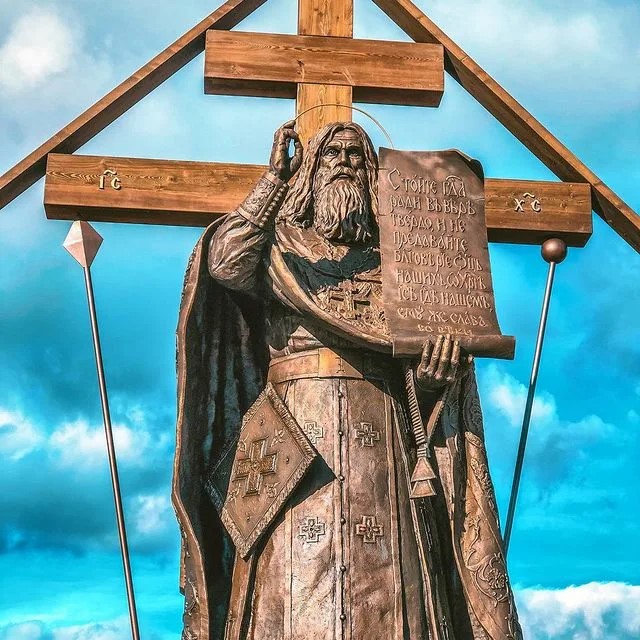
The fact that the New Believers do not recognize Christ as reigning, but expect His kingdom sometime in the future, is not at all an Old Believer’s speculation or a deliberate and biased reinterpretation of the text introduced under [the patriarch] Nikon. According to the New Believers themselves, the new text of the Creed expresses precisely this idea. To confirm my words, I will point to the publication of “A Brief Explanatory Prayer Book,” the purpose of this publication is expressed as follows:
despite the hard work of church publishing houses, the lack of Orthodox literature is still noticeable, especially outside large cities. Unable to print the full Prayer Book, the editors decided to publish selected prayers as part of the Church Slavonic language course, providing them with short explanations. The text is published under the name ‘A Brief Explanatory Prayer Book. Trinity Evangelist. Edition of the Trinity-Sergius Lavra.
[47. P. 163]
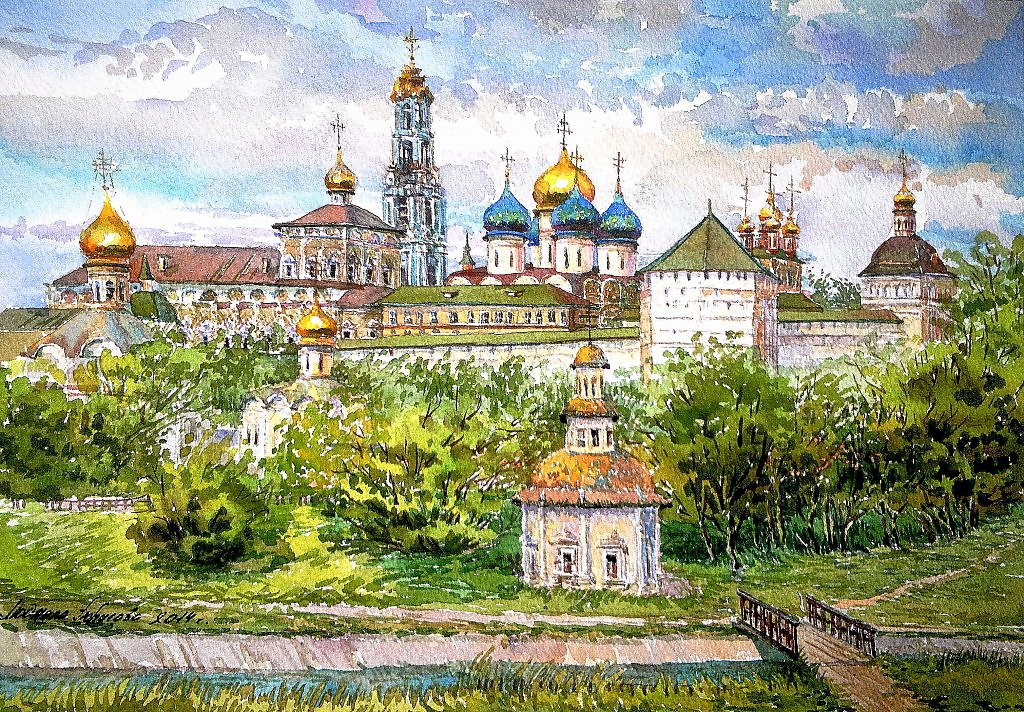
In other words, the text of the Creed itself and its explanations corresponds to the dogmatics of the New Believer Church and expresses the official dogmatic interpretation of the Creed. And in this “Brief Explanatory Prayer Book” it is officially explained that Christ does not yet reign. I quote verbatim:
To His kingdom there will be no end – after the judgment the kingdom of Christ will come, which will continue endlessly” .
[47. P. 169]
It is written quite clearly: “after the judgment the kingdom of Christ will come,” but now, obviously, Christ does not reign, since his kingdom will come only after the Judgment. From these explanations it also follows that after the second coming, as the New Believers believe, a special kingdom of Christ will come, to which there will be no end. Surprisingly, it turns out (we have to repeat ourselves) that the New Believers turned the heretic’s Marcellus of Ancyra old idea on its head, and if he said that the special kingdom of Christ exists now, and after the Judgment it will end, then in Nikon’s Creed it turned out that the kingdom of Christ does not exist now and will only come after the Judgment.
In response to this New Believers’ false wisdom, it should be said that since the time of the 1st Council it has been firmly established that there was not, there is not, and there will not be any special kingdom of Christ, for the kingdom of the Father and the Son and the Holy Spirit is one. Gelasius of Cyzicus, in his collection of the acts of the Council of Nicaea (Gelas. Vol. act. conc. nic. I. 2. XIV), contains evidence that the pillar of Orthodoxy, Hosius of Corduba, on behalf of all the Orthodox bishops of the 1st Council, said about the Son of God:
The True God is always existing from the true God, and the Father is always existing, ruling with the Father, co-eternal with the Father, reigning with the Father.
[13. P. 107]
St. Cyril of Jerusalem also speaks quite definitely about the nature of the kingdom of the Son of God in the Fourth Catechetical Teaching [21]:
Who sits at the right hand of the Father before all ages, for He did not receive from God the throne at His right hand after suffering, having been crowned then, as some think, but by His own being; He is born with, and always has, royal dignity, sits with the Father, is God and Wisdom and Power, as it is said: together with the Father he reigns and does everything according to the will of the Father, without, however, diminishing in Divine dignity.
(IV, 7)
That is, Christ always has royal dignity and reigns together with the Father, and there has never been such a moment and never will be when Christ was not King. In addition, Cyril of Jerusalem, in order to avoid any misunderstandings about the difference between the kingdom of the Father and the Son, firmly and unequivocally says that it is not, has not been and will not be that the Son would have one kingdom, and the Father another, and expresses it as follows:
They are one in the dignity of the Divinity, since God gave birth to God; are one in royal power, for the Father does not reign over some and over others the Son, but over whom the Father reigns, over the same the Son reigns.
(XI, 16)
Gelasius of Cyzicus contains a special explanation (Gelas. Vol. act. conc. nic. I. 2. XII), which he attributed to the Acts of the 1st Council, on how to understand the three Persons in the one Divinity of the Father and the Son and the Holy Spirit, where the following is said verbatim:
So, we must confess one will, one kingdom, one power, one dominion over all created beings, visible and intelligible.
[13. P. 159]
From the given data and evidence, it should be concluded with all certainty that the New Believers’ assertion that Christ will reign in a special kingdom after the Last Judgment, as follows from the text of their Creed, where it is said “to his kingdom there will be no end,” is absolutely un-Orthodox and heretical .
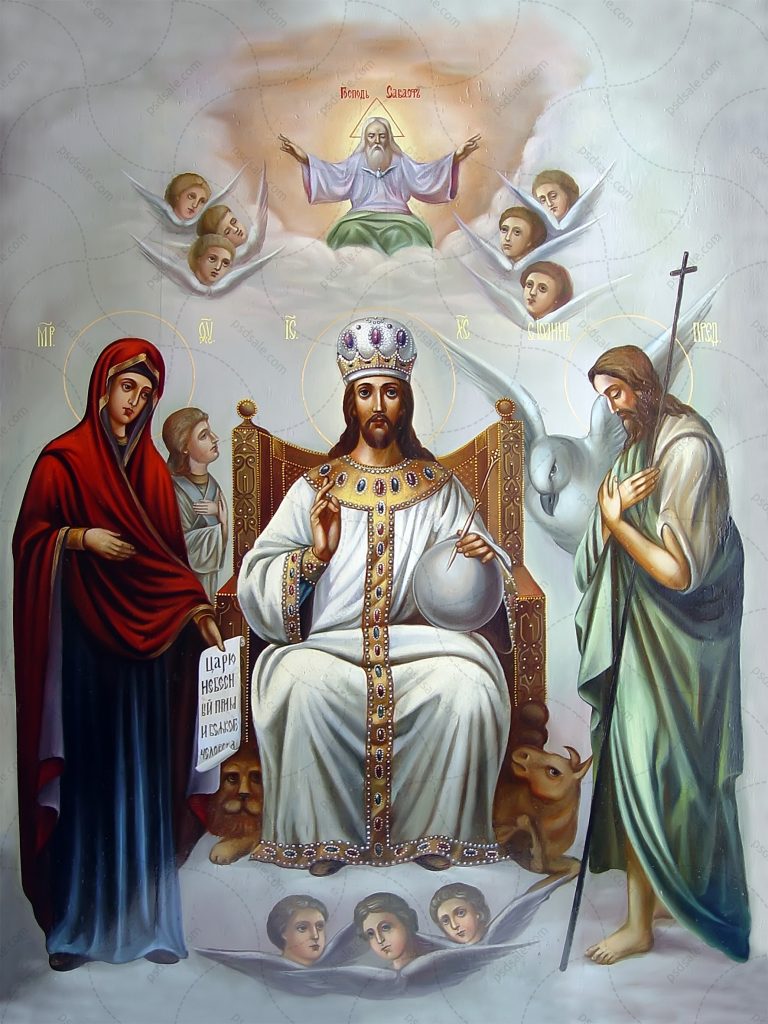
Now let’s move directly to the study of the Greek text of the Creed, as composed at the Second Ecumenical Council of 381.
In Greek, the place we are interested in, as already mentioned, has the form: oú tís vasileías ouk éstai télos (οὗ τῆς βασιλείας οὐκ ἔσται τέλος). New Believers’ translators, having taken two words from this phrase – ouk éstai – translated them <there will be no [not will be if literally, F.P.] >, formally based on the fact that the verb eim: (to be, to exist) in the 3rd person singular has the form – éstai or ésetai , without paying absolutely no attention to the meaning of the whole phrase, which reveals extremely low translation skills. For researchers note the enormous importance of context for the applicable tense usage in each specific case. Thus, philologist T.I. Tikhomirova writes that
for a verb, the context <predicts> (demands, constructs) the use of a certain form of tense, and that, in turn, <selects> the corresponding verbal lexeme that corresponds to the grammatical meaning of this form.
[56 . P. 130]
This fact, firmly established by experts, is extremely important precisely for the case under consideration, because the Creed has theological and dogmatic content, and the context, in this case, is nothing more than the dogmatic meaning that is contained in this text. Consequently, for an explanation of the text, one should turn only to the church fathers, and their interpretation and explanation will be the context for the verb <to be>, which predicts and requires the use of the applicable tense.
It was necessary to mention above that the heretic Marcellus of Ancyra argued that to the present kingdom of Christ there will be an end, but the fathers of the Church, in particular Cyril of Jerusalem (Oglasit. Puch. XV, 27, 31-32), said quite definitely that the kingdom of Christ is endless, and that Christ is King and will remain so forever. In the writings of St. Gregory the Theologian there is a wonderful place in the 30th Oration, which explains how the words of the Creed, ou tís vasileías ouk éstai télos (οὗ τῆς βασιλείας οὐκ ἔσται τέλος), should be understood:
Who and for what reason, will put an end to His kingdom?… however, and you do know it, to his reign there will be no end. The Son is confessed to be reigning – in one sense, as the Almighty and King, both of the willing and unwilling; but in another, as bringing us to obedience and subordinating us to his the kingdom of those who voluntarily recognize Him as King. And to His kingdom, if we understand it in the first meaning, there will be no end (éstai télos); and if we understand it in the second, will there be any end? .
[8. C. 430, 431]
The explanations of Gregory the Theologian have the goal, as can be seen from the above passage, to prove that the now reigning Christ will always reign.
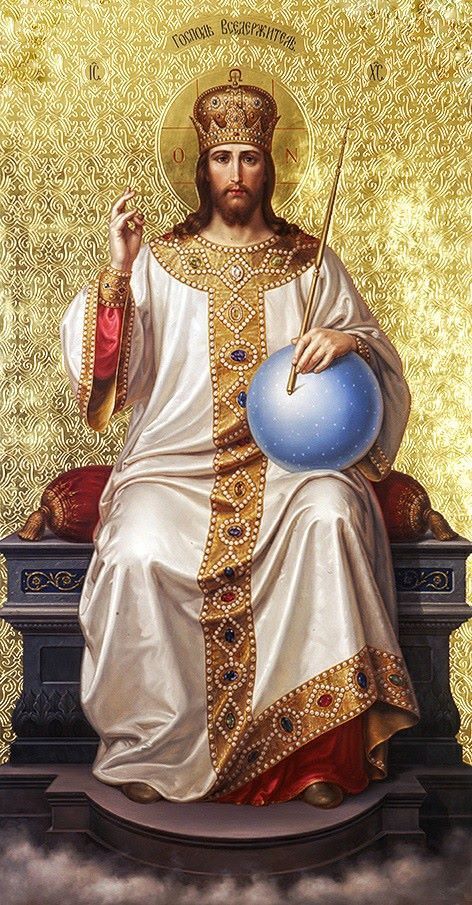
The Fathers of the Second Ecumenical Council in a letter to the Roman Church (it is given in the “Church History” of Blessed Theodoret of Cyrus [35]) indicated that the Church recognizes
the one being of the Father and the Son and the Holy Spirit, the equal dignity and the co-eternal kingdom.
(Theodorit. I , 9)
In the same letter to the particularly undiscerning Romans, who apparently could not fully understand what the words ou tís vasileías ouk éstai télos mean, the Fathers of the Council wrote:
You can completely delight your souls if you want to read the exposition , published in Antioch by the council that was there.
(Theodoret. I, 9)
Let us also follow the advice of the fathers of the Second Council and see what was said about the kingdom in the tomos of the Local Council of the Orthodox Church in Antioch, which served as one of the sources based on which the fathers of the Second Council established the dogma of the kingdom.
The Antioch Local Council of 341 clarified the question of the kingdom in two versions. In one (the Encyclical of the Council) it is said:
He [Christ] will remain King and God forever .
(Socrates 2, 10)
Another time (in the so-called 4th Antiochian formula of the Creed):
Whose kingdom, as everlasting, abides in limitless ages, for He sits at the right hand of the Father, not only in this age, but also in the coming.
[See: 38. C 62]
We can note that in the second definition the question of the kingdom is developed in detail: it is emphasized that Christ is the King now and will remain so forever, the kingdom is defined by the word <everlasting> (‘akatapaustoj) – a kingdom that has no end.
The Fathers of the Local Orthodox Council of Serdica, held in 343, whose dogmatic definitions also formed the basis of the kingdom section of the Creed of the Second Council, wrote:
We believe: that the Son reigns with the Father always, without beginning and without end, that His kingdom is not determined by any time and will never cease, for what always exists did not begin and cannot end.
(Theodoret. 2, 8)

Taking these clarifications into account, we come directly to the translation of the phrase ou tís vasileías ouk éstai télos
ou – masculine pronoun in the singular in the genitive case – <whose, his>;
tis – member or demonstrative pronoun of the feminine singular in the genitive case [31. C.938];
vasileías – a feminine noun in the singular in the genitive case, is not adequately calqued into Russian, therefore it is translated as a neuter noun in the singular in the genitive case – <kingdom>;
ouk – decisive, absolute, unconditional denial, when the fact itself is denied – <not, no> [31. P. 128];
éstai – 3rd person singular form of the future tense from the verb eim: – is, to exist, to be, be really, in fact [5. Stlb. 373; thirty. P. 316] – <will be>;
télos – neuter noun in the singular in the nominative case – <completion, fulfillment, consummation>, can also be translated: finally, goal, border, limit, boundary, allotted time, term [31. P. 341].
To this should be added an explanation of how the word télos was understood in the Greek-speaking world itself, in the first centuries of the new era. The Greek author Artemidorus Daldianus writes (Artemidor Dald. Orneocrit. 3, 58):
the word télos means successful consummation.
[3. P. 224]
Thus, literally the entire phrase ou tis basileías ouk éstai télos can be translated: to His kingdom there will be no consummation. Closer to the traditional text – to His kingdom there will be no end. As the famous philologist S.I. Sobolevsky writes:
in Greek, as in Latin, in this case the personal phrase is used with the subject in the nominative case. In other words, in the phrase under study the subject is the noun télos, i.e. <end>, and it is it who will not be. The difficulty is that when the predicate is expressed by the verb <to be> with negation, the subject is often placed in the genitive case, so that an impersonal phrase is obtained.
[48. P. 352]
In Slavic languages, such an impersonal turn makes it possible to attribute the temporal meaning to a noun in the dative case, i.e., in our case, to the word <kingdom>. And this, in the dogmatic context of the Creed, will be heresy, since the Kingdom of God cannot be correlated with time. According to the formula of the Council of Serdica (343):
The Son reigns with the Father always, without beginning and without end, that His kingdom is not determined by any time and will never end, for what always exists, did not begin and cannot end.
(Theodoret. 2 , 8)
The translation “there will be no end” is also not suitable because, due to the very form of the word “will be” [budet], which has only the sense and meaning of the future tense [61. P. 190], it contains a certain sense of conjecturing, an expectation of something in the future, completely losing sight of the eternally lasting Kingdom, which is today and yesterday, and before time, and after the end of time, for Christ is above time, since The Lord is the Creator of time.
Therefore, in order to avoid such a danger, one should use an impersonal phrase in the form of the present tense, which has a semantic connotation of eternity – <is not>, <there is not>, <there is no>, < has no>. In this regard, it should be remembered that the Holy Fathers always explained that the phrase ou tis vasileías ouk éstai télos indicates the timeless, eternal state of the kingdom.
Church historian V.V. Bolotov writes that the life of God is most accurately expressed in human language by the formula “I am” (in Greek egó eimí [38. P. 348], that is, the form of the 1st person singular present tense of the verb <to be>.In Slavic languages, as researchers point out, the state of eternity is expressed by:
verbs in the form of the present tense: Such forms show that an action has no time boundaries and is always being performed , and back in the 16th century, these forms of time were called present and everlasting
[57. P. 99] & [45. P. 53].

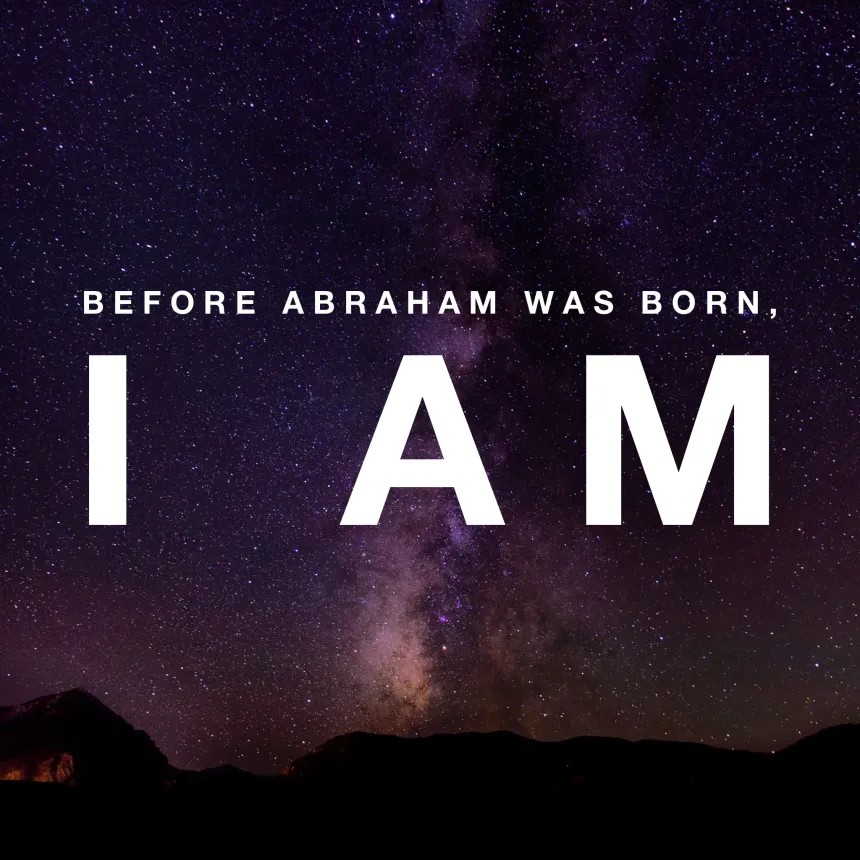
For the Greek-speaking perception, the phrase ou tis vasileías ouk éstai télos means not just “will not be” sometime in the future, but carries the following meaning: To His kingdom will never come consumation, because there are no boundaries of any kind to the kingdoms of Christ; this same idea on Slavic grounds can only be conveyed by the word <there is not>, because in the archaic language of the time (XI-XIII centuries) it was common to have an undifferentiated form of the present-future tense [55. P. 48]. [The Slavonic] <Nest >is the irregular verb <to be> in the 3rd person singular of the present tense, which means <is, to have>, and, as we see, only it bears this stamp of <present and everlasting>, plus the word <not>, which appeared as a result of compounding <not + is [there is not, F.P.]>, should be understood as <is not, does not have, has no>, accurately expressing the thought contained in the Greek text. It would be appropriate to point out here that St. Cyril of Jerusalem, who when explaining the meaning of the infinity of the kingdom in the XII Catechetical Teaching [24], used the verb in third person, singular, present tense, explaining the prophecy of Isaiah 9: 6 thus:
A Son was given to us. And this shows that first was the Son of God, then he was given to us, and a little later he says: and to His peace there is no bounds Is 9:7. The Roman state has bounds, but the Kingdom of the Son of God has no bounds. The Persians and Medes have bounds, but the Son of God has no bounds.
(XII, 24)
![]()
Summarizing what has been said, it should be concluded that the ancient Liturgical Slavonic text of the Creed: to His kingdom there is no end – best conveys the meaning of the Greek text in its slightest nuances and is fully consistent with its understanding according to the patristic tradition, while the New Believer’s substitution of “there is no” with “there will be no,” is heretical in the full sense of the word, since it completely distorts the meaning of the text of the Creed, claiming that Christ will reign after the Judgment and will have his own special kingdom (is this not an echo of the heresy of the millenarians?). It still seems to us that not all New Believers believe this way, but if so, then why is this phrase recorded in the text? Common sense suggests, and Orthodox dogma demands, that Nikon’s heretical distortion of the text be immediately corrected so that we return to the truly Orthodox formula preserved by the Old Believers.
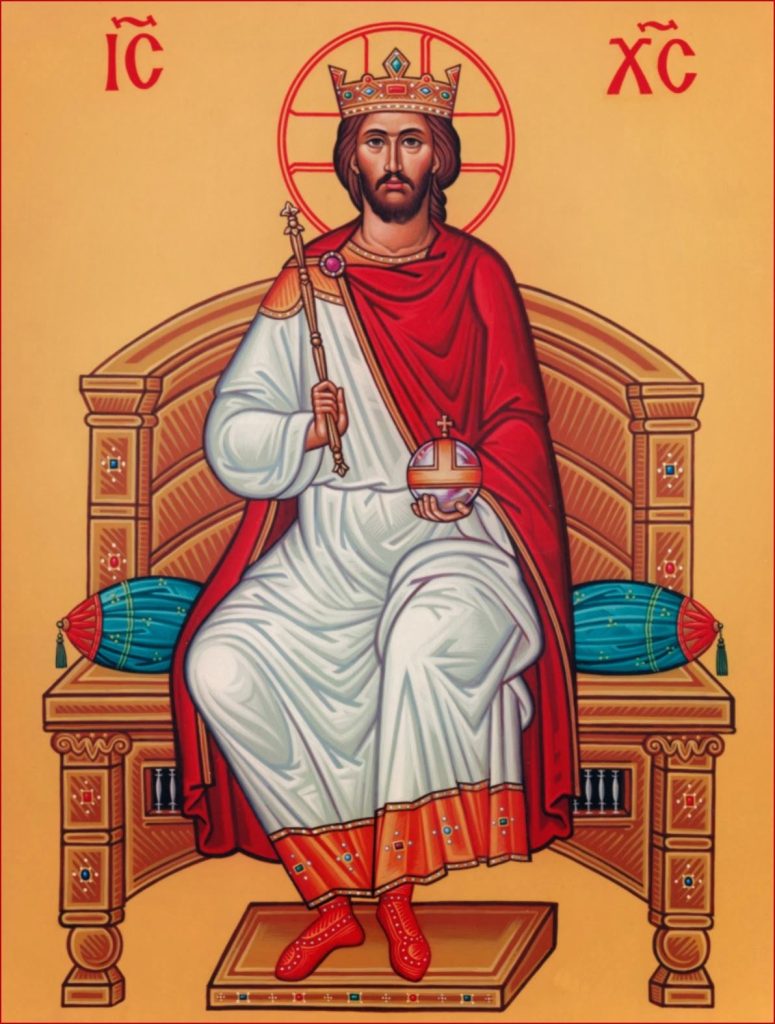
- * The literal translation of the Creed from the Greek and the Slavonic is To His Kingdom There Will Be no End. In order to stay accurate to the original article and for many of its explanations to make sense, I kept it literal. For a less technical article, using the familiar English Whose Kingdom Will Have no End, see my article His kingdom Has No End. Timofieiev’s original article and the original website that hosted it, are down since 2008. The site’s URL alleges as reason: “mass spammers’ attacks and lack of resources to develop the site.” The article survives only in forums where other people have reposted it. Sources are listed here, at the end.

